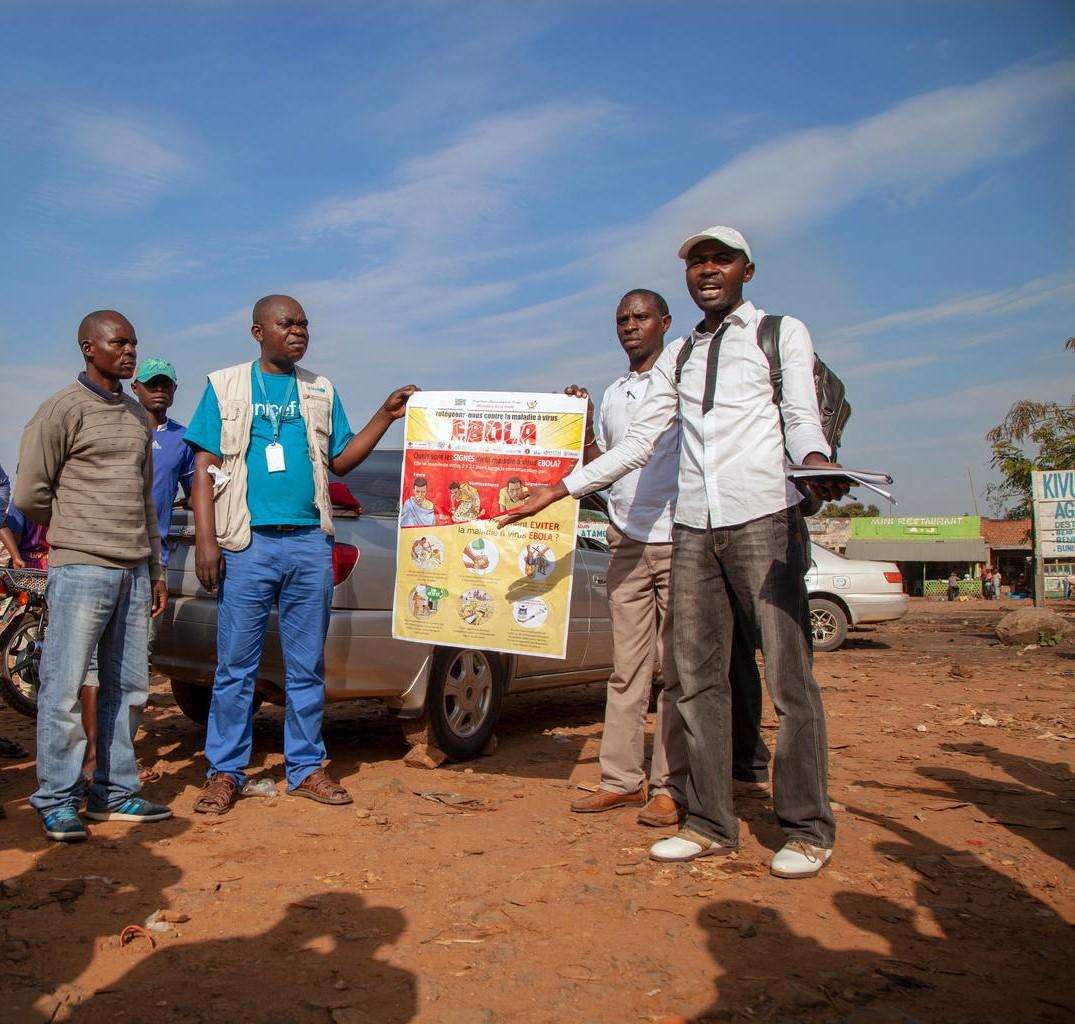Today the Democratic Republic of the Congo's (DRC) ministry of health confirmed there are now officially 907 cases of Ebola in an 8-month long outbreak in the country's North Kivu and Ituri provinces, reflecting 10 new cases in 2 days.
Seven new cases were recorded today: two each in Katwa and Mandima, and one each in Butembo and Masereka. A total of 223 suspected cases are still under investigation. The health ministry also noted one probable case in a woman from Masereka who died 1 day after her husband's death.
The health ministry also recorded 3 new deaths, including community deaths in Mandima and Masereka. Since August, there have been 569 deaths.
Yesterday the DRC recorded 3 new cases, raising the total number of cases, 2 in Katwa and 1 in Masereka. Officials also confirmed 2 deaths yesterday, 1 in the community in Masereka and 1 in the Mangina Ebola treatment center (ETC). Deaths in the community raise the risk of further disease spread.
Regrouping after fires
The cases come as officials continue to regroup and reorganize after two ETCs were burned in recent weeks in the outbreak's main hot spots, Katwa and Butembo.
Late yesterday DRC officials said community talks continue in Butembo to better bridge the gap between health workers and community members who have shown reluctance to the Ebola response.
"The fact that the response teams were accompanied by the police in less secure areas was perceived with suspicion," the DRC said in a summary of the meetings. "Some local health providers who were not directly involved in the response have intoxicated the community by spreading messages that are contrary to the messages of the response teams."
Also yesterday, Oly Ilunga Kalenga, MD, PhD, the DRC's minister of health, held a press conference in Kinshasa. While he said he expected the outbreak to be over in most health zones in the coming weeks, Butembo and Katwa remain a threat to the rest of the region.
Kalenga said the violent attacks on ETCs in those towns shows a "dangerously intense" local response to outbreak and health workers.
Though no one was seriously injured in Butembo's ETC fire, the attack caused Doctors Without Borders (MSF) to pull staff from the area.
The DRC also provided the latest vaccination numbers today. Since August, a total of 85,867 people have been vaccinated with Merck's unlicensed rVSV-ZEBOV vaccine, including 21,953 in Katwa, and 10,785 in Butembo.
Violence tied to breakdown of trust
In a commentary today in the New England Journal of Medicine, Vinh-Kim Nguyen, MD, a medical team leader for MSF working in Kayna, DRC, said an epidemic of suspicion exists among local populations and outbreak response workers.
Nguyen said some local community members see workers as "Ebola profiteers"—interested only in stopping the spread of the virus and doing little to treat or correct other serious health problems, including malaria, cholera, and typhoid.
The recent attacks in Katwa and Butembo "resonate with prevailing anger driven by the perception that the Riposte's [international response's] massive funding is not being adequately redistributed and is largely benefiting outsiders," Nguyen writes.
"In this setting, crucial outreach activities, such as identifying cases and ensuring safe and dignified burials, can be dangerous. Tense and occasionally violent standoffs between frightened residents and response teams are a routine occurrence. So in areas deemed insecure, outreach workers and vaccination teams are being accompanied by armed military escorts."
Nguyen said outbreak responders have learned a great deal since West Africa's 2014-16 Ebola epidemic, including placing more emphasis on engaging the local communities. Still, he adds, mistrust remains, fueled in part by a growing global mistrust of scientists.
He concludes, "State-of-the-art medical interventions won't be enough without serious efforts to rebuild trust, informed by social science rather than pious liturgies."
Wellcome Trust increases funding
Today the Wellcome Trust announced it would be giving £2 million ($2.65 million US) to the World Health Organization (WHO) and the government of the DRC to support vaccine research in the DRC.
"The Ebola virus has taken hold in an incredibly challenging region and recent attacks on treatment centres show that the security situation is a very real concern which will impact on the epidemic," said Jeremy Farrar, MD, PhD, director of Wellcome, in a press statement.
"The outbreak is in danger of spreading within the DRC, and if the international community doesn’t step up their support, there is real risk that this outbreak will get out of control, cross borders and take off as it did in the West African epidemic where over 11,000 people died."
Long-lasting viral RNA in semen of survivors
Finally today, the New England Journal of Medicine also published a longitudinal study on Ebola survivors in Liberia, which showed the presence of Ebola RNA in semen for more than 3 years.
The study showed that, during 12 months following recovery, 966 survivors reported six symptoms more than controls: urinary frequency (14.7% vs 3.4%), headache (47.6% vs 35.6%), fatigue (18.4% vs 6.3%), muscle pain (23.1% vs 10.1%), memory loss (29.2% vs 4.8%), and joint pain (47.5% vs 17.5%). All but the urinary pain improved within 12 months.
The researchers also found that, among the 252 men who provided more than one semen sample, detection of viral RNA in semen was intermittent in 78 (31%). The time from acute illness to Ebola RNA detection was as long as 1,178 days, or about 39 months. The median was 551 days, or 18 months.
This was the first study to match Ebola survivors with controls who did not contract the virus but shared similar environmental exposures.
See also
Mar 6 DRC report
Mar 5 DRC report
Mar 6 Wellcome press release
Mar 6 N Engl J Med commentary
Mar 6 N Engl J Med study























